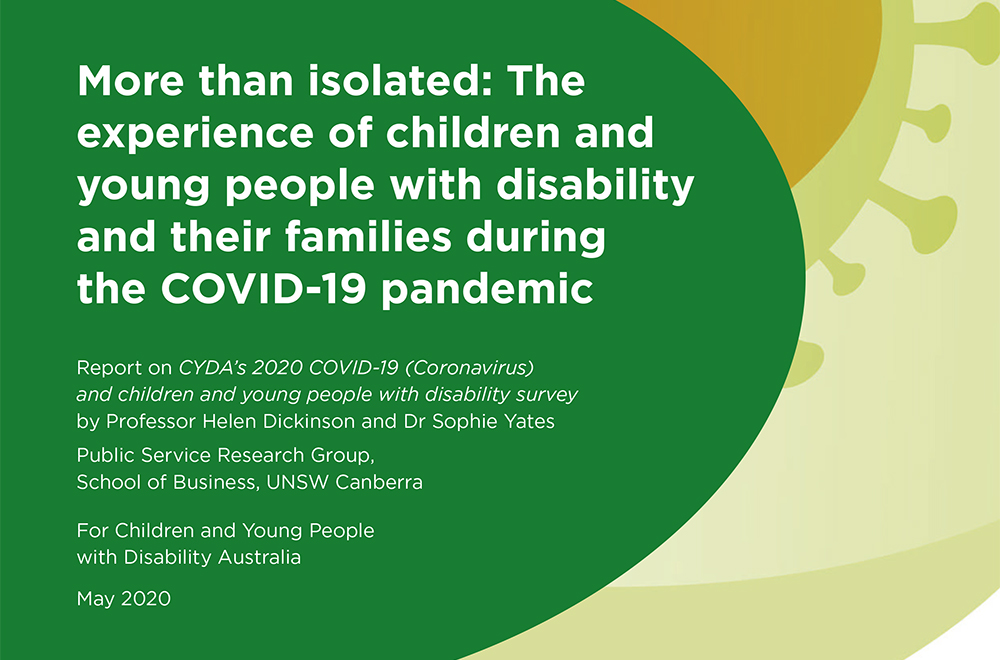A landmark report has uncovered a wide gap when it comes to formulating a strategy for young people with disability to deal with COVID-19.
The Children and Young People with Disability Australia (CYDA) COVID-19 disability survey revealed that Australia lacked a coherent national response in the context of the COVID-19 pandemic. While swift responses were formulated in relation to other ‘vulnerable’ groups, such as aged care, there was a gap in relation to children and young people and their families.
And while this group was affected like the rest of the population when it came to supermarket shortages, school closures and income loss, etc., these disruptions and difficulties were heightened by the precarious circumstances of many families. Other impacts such as support worker and therapy cancellations, plus an unmet need for disability-specific information about COVID-19 also affected them.
Respondents identified a broad range of impacts, including inability to access essential products and services and the cancellation of educational programs, which generated additional caring responsibilities. Households reported feeling uncertain about the best ways to act, and this had an impact on the mental health of all family members. Also, health issues included inability to access COVID-19 testing and telehealth and engaging with health services and COVID-19 information was not appropriately targeted.
The main message to emerge from the report was that urgent action was needed to attend to the many inequities that people with disability, their families and carers faced on a daily basis. Without progress with these issues, any future emergencies will likely produce significant destabilisation for households, with significant detrimental impacts.
The report was carried out by the UNSW Canberra School of Business.

